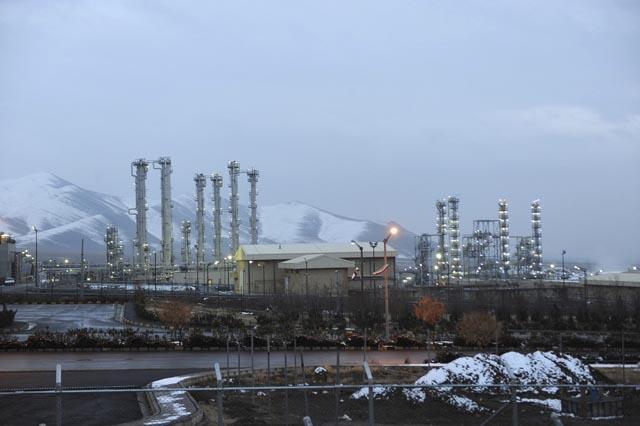TEHRAN — Iran’s reformers and moderate conservatives welcomed an agreement Monday between Iran and six world powers on how to implement a nuclear deal struck in November, saying it will shore up Iran’s sanctions-hit economy. Hardliners, however, inside the Islamic republic remain opposed.
The six-nation group — the five permanent members of the UN Security Council plus Germany — and Iran agreed to start implementing the terms of the historic interim deal from January 20. That will start a six-month clock for a final deal to be struck over Tehran’s contested nuclear programme.
Alaeddin Boroujerdi, head of the parliament’s National Security and Foreign Policy Committee, said that enforcing the deal opens new windows for Iran and paves the way for expanding its economic dealings with the outside world.
“By enforcing the deal, there will be some openings for Iran’s economy and restrictions will be eased,” said Boroujerdi, a moderate conservative. “Economic sanctions will reduce and the way will be paved for expansion of economic activities.”
Iran’s hardliners have called the deal a “poisoned chalice”, challenging moderate President Hassan Rouhani and Foreign Minister Mohammad Javad Zarif with the task of trying to convince sceptics that they are not compromising on key issues of national sovereignty.
Iran’s Supreme Leader Ayatollah Ali Khamenei, who has the final say on all state matters, has supported Iran’s nuclear negotiating team, calling them “sons of the revolution” and “our own children”.
Prominent political analyst Sadeq Zibakalam said the accord has boosted Iran’s regional might.
“By implementing the deal, tensions between Iran and the West will be eased and the Islamic republic’s regional stance will be boosted. It will also nullify efforts by Israel and some of Iran’s Arab neighbours to isolate Iran,” he said.
Zibakalam said both Rouhani and Obama have to fight an uphill task with hardliners who seek to undermine the process.
“We should not ignore efforts by extremists both in Iran and the US to sabotage the process. They are those who benefit from a crisis and will increase pressures on the government as of now. Hardline congressmen and pro-Israel lobby groups will do the same in the US,” he said.
Hardline Iranian cleric Mohammad Reza Ashtiani on Monday told local officials in Qom, a holy city 130 kilometres south of Tehran, that the terms of the deal was not appropriate.
“They are going to give us part of our own money as if we are indebted,” the semiofficial Fars news agency quoted him as saying.
Hardliners say the agreement “practically tramples on Iran’s enrichment rights”.
Under the deal, Iran has agreed to halt its enrichment of uranium to 20 per cent, a level just steps away from weapons-grade material, but will continue enrichment up to 5 per cent. It also will convert half of its stockpile of 20 per cent enriched uranium to oxide and dilute the remaining half to 5 percent.
In exchange, no new sanctions will be imposed against Iran and the current sanctions would be eased for a period of six months as talks continue for a permanent deal.
The November deal allows Iran access to $4.2 billion in revenues blocked in foreign banks that can’t be transferred because of sanctions. Tehran would receive the first $550 million installment February 1.
Under the accord, sanctions on petrochemical products, the auto industry, passenger aircraft parts and services as well as the trade in gold will be lifted but the main oil and banking sanctions will remain in place.
Iran says it will carry out its obligations including neutralising its stockpile of 20 per cent enriched uranium gradually within six months, not all at once.












